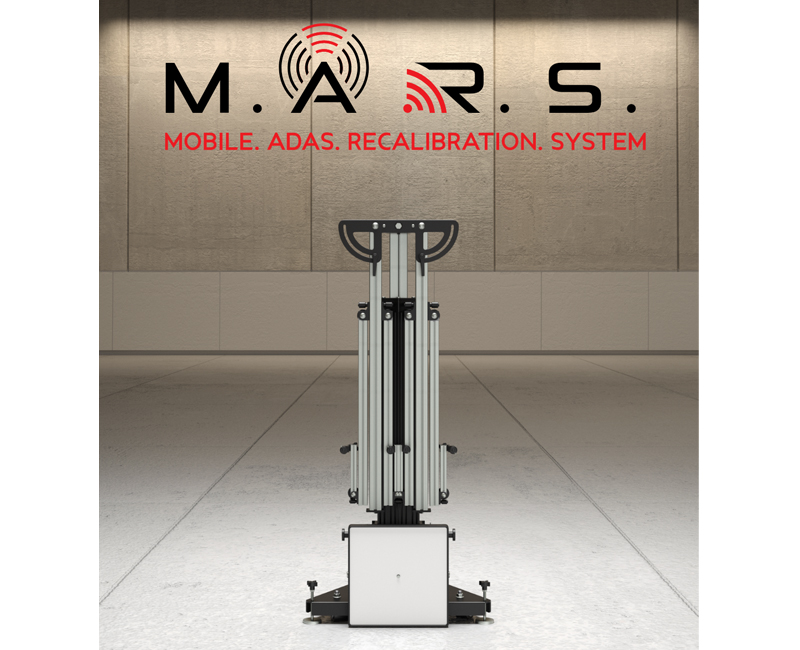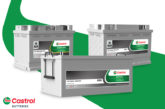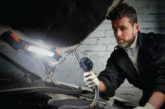
Maverick Diagnostics’ Andy Brooke delves into the hotly debated issue of what role ADAS calibration should play in the annual MOT.
Advanced Driver Assistance Systems – more commonly known as ADAS – are bursting into independent workshops with newer cars being fitted with ADAS systems as standard. Lane-keeping assistance, automatic emergency braking, adaptive cruise control and pedestrian detection are just a few examples in a bid to enhance road safety.
Given the prevalence of ADAS, not only is it important that the independent aftermarket is qualified to tackle this technology, but given the safety-critical nature of the system, should it be part of the annual MOT?
A case in favour
ADAS relies on sensors and cameras, which must all be working correctly to ensure accuracy. Over time, similar to how wheels wear from driving over potholes or wipers from clearing rain, these systems can start to misalign. For example, a front-facing camera that is just 1.5° out of calibration – possible from an innocuous knock – can be approximately 60ft off over distance.
This emphasises the need for these systems to be maintained and calibrated. Not doing so can lead to problems, like misinformation and malfunction, which has a detrimental effect on vehicle safety. That maintenance is currently the responsibility of the driver. In the UK, motorists, like when it comes to any type of vehicle servicing, are accountable for the functionality of ADAS on their vehicle. This includes cleaning sensors, checking alignment and calibration.
Unfortunately, according to recent research by the IMI, ADAS technologies and calibrations are not well understood by the general public. Of 1,036 respondents, 18 per cent knew what ADAS was and could correctly identify it; given 86 per cent of drivers surveyed have ADAS on their vehicles, that is a startling revelation.
It gets worse: according to the same research, 39 per cent of drivers thought ADAS calibration was conducted during an MOT, and 47 per cent thought ADAS calibration, if required, was an urgent job.
Absolutely, we, as an industry, need to do better in terms of educating the general public about the systems; however, given the safety-critical and complex nature of them, is it justifiable to place such responsibility on them? If ADAS checks and calibration were part of the MOT, wouldn’t this help alleviate the problem?
The bigger picture
I would also argue that ADAS is only the tip of the iceberg; this is surely part of a larger shift towards even more advanced vehicle technology, such as autonomous vehicles.
Furthermore, EVs – like them or loathe them – they’re here and technicians have no choice but to get a grip on their needs, such as putting a Tesla into the correct mode for testing. Specialist EV training should become a standard part of an independent workshop’s education. Ultimately, vehicle systems are evolving and independent workshops must adapt – and adapt quickly.
I believe including ADAS in the MOT could ensure that these safety-critical systems are regularly checked and calibrated by professionals. It would reduce the burden on untrained drivers and potentially improve road safety.
Also, the increasing complexity and importance of vehicle technologies emphasise the need for the independent aftermarket to stay ahead of these developments through continuous education and adoption of advanced tools, like our M.A.R.S system.

Mobile calibration
At Maverick Diagnostics, we are backing up my words with action: we have recently struck an agreement with an American company, Dynamic Automotive Solutions, to sell the Mobile ADAS Recalibration System – or M.A.R.S for short.
Perfect for mobile technicians, as well as independent workshops if UK Garage & Bodyshop Event feedback is to be believed, the M.A.R.S system conducts ADAS calibrations; it boasts a compact design and has a collapsible stand that reduces to a convenient 36” frame. For added ease, it is quick to set up and pack away.
It is fully compatible with OEM service information, which allows for exact calibrations of front radar and blind spot radar systems using both OEM and aftermarket scan tools. Furthermore, it is constructed from anodised aluminium and stainless steel, making M.A.R.S extremely robust. The kit also comes with multiple, space-saving targets, as they can be rolled up. Ultimately, M.A.R.S offers a practical, efficient solution for ADAS recalibrations, meeting the needs of technicians and workshop owners who require reliable, easy-to-store equipment.









